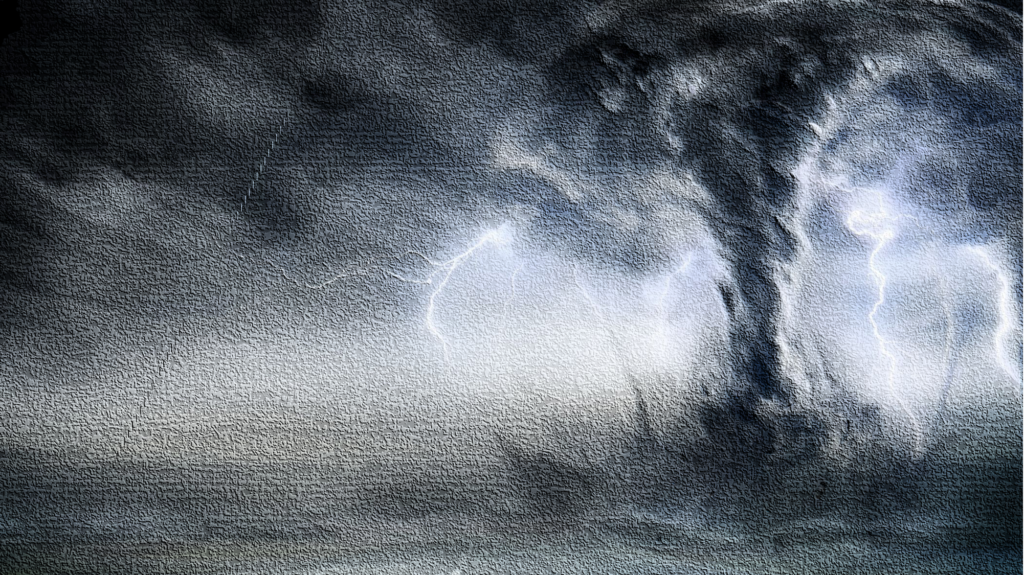During the disaster, you may have experienced personal losses or have family or friends that were severely impacted. Since then, you may have had to find emergency shelter and other basic necessities, such as food and clothing. In the aftermath you are now facing all sorts of new problems. As you deal with these challenges, don’t forget that you are going through one of the most stressful times in your life. You are probably experiencing some of the common stress reactions:
A need to talk about the event
You may want to tell what happened again and again. Even if someone is a perfect stranger, you may tell him/her about what you went through. You may have kept pictures to show people.
Upset feelings or no feelings at all
Maybe you are having “yellow” reactions to the disaster – feeling nervous or scared. Maybe you are having “red” reactions – getting angry. Maybe you are having “black” reactions – feeling down or depressed. Then again, like most people, you may be having a “rainbow” of reactions. You may feel jittery and then start crying over nothing. You may take out your frustrations on an easy target (a door or someone you love). Or maybe you don’t seem to care about anything at all right now. It’s as if you are emotionally numb and feel nothing.
Trouble thinking clearly
You may be confused, dazed, or forgetful and may not want to think about the problems you are facing right now. Maybe you torment yourself with thoughts of what you could have done differently. Maybe you keep asking yourself, “Why?”
Vivid memories
You may be able to close your eyes and picture the event. Even now the sights, sounds, and smells are still vivid in your mind and trigger memories that upset you.
Nightmares and trouble sleeping
Unfortunately, at a time when your body desperately needs rest and sleep you may have problems falling asleep and staying asleep.
A need to rely on other people
Much more than usual, you may want and need to be around other people.
A need to take action
You may feel that something – anything! – has to be done right now. You may be pacing or rocking, or fidgeting more right now. Or, at times, you may feel so discouraged that you do nothing.
Physical problems
You may have more physical problems now, such as headaches, stomachaches, nausea, and fatigue. These are just some of the common and usually temporary reactions a person may be having to the disaster. Keep in mind that they are normal responses in a normal person to an abnormal situation. Fortunately, there are some simple steps you can take to help yourself through these difficult times.
HELPFUL WAYS TO DEAL WITH THIS STRESS
Being with other people
You may be reluctant to “impose” on others, but just having a caring person at your side can be a great source of comfort. There are many people willing and able to be with you in your times of need. All you need is to ask.
Letting other people help
Don’t let foolish pride stand in the way of receiving what you truly need from relatives, neighbors, friends, and concerned volunteers.
Talking about your feelings
Talking about your feelings is one of the best ways of working through your reactions to the disaster. Go ahead and talk about your fears, frustrations, and sadness – you’re not just feeling sorry for yourself. And while it is true that eventually you will need to put the disaster behind you, you can’t do that by ignoring your feelings or trying to erase those memories. You have to confront your emotions.
Getting the information and advice you need
You are probably handling many of your problems on your own. But because you are caught up in the middle of this situation you may not be seeing objectively. You may need to ask someone for some information, advice, or suggestions.
Setting realistic expectations for yourself
Avoid the trap of demanding too much of yourself and get help with tasks that are too big for you right now. Accept that you cannot control every situation. Use setbacks as opportunities to learn and grow.
Manage the things that you can
The task of cleanup and recovery can be huge and overwhelming, leaving you with a feeling of not even knowing where to begin. Divide big tasks into smaller, more manageable ones. Start the day by writing out a “things to do” list and prioritize the most important things.
Reassuring yourself
You can remind yourself that you are OK, and that there is nothing wrong with you for having these reactions.
Taking care of yourself
You have plenty of work to do, but you won’t be able to do it if you’re sick. Be sure to take good care of yourself by eating well, getting enough sleep, and taking some time for yourself everyday. And be careful with alcohol and other drugs. In tough times like these, it’s easy to abuse them.
Find inner strength
Many people find comfort and strength from their faith in God. A pastor, chaplain, or Christian caregiver will be happy to help provide spiritual direction and support if you wish. There are a few things you should try to remember when trying to understand disasters like the one you have just experienced:
-
- No one who sees a disaster is untouched by it.
- It is normal to feel anxious about you and your family’s safety.
- Profound sadness, grief, and anger are normal reactions to an abnormal event.
- Acknowledging our feelings helps us recover.
- Focusing on our strengths and abilities will help you to heal.
- Accepting help from community programs and resources is healthy.
- We each have different needs and different ways of coping.

